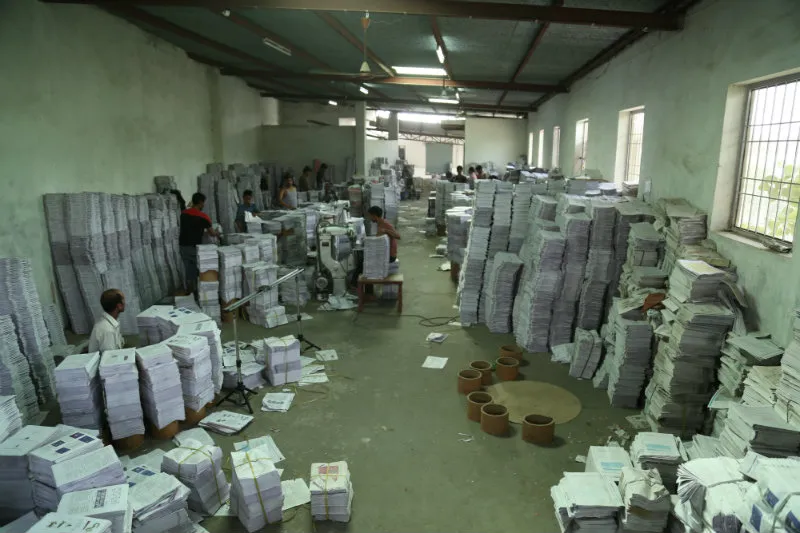This Mathura-based entrepreneur prints 18 million books a year for poor students
Hindu texts have always been in great demand in Mathura in Uttar Pradesh, believed to be the birthplace of Hindu deity Krishna. Over time, these texts have been replaced by digital media and TV serials, says Gaurav Agarwal, an entrepreneur from Mathura. He says, “The religious texts’ segment almost vanished due to television and digital media.”
Gaurav’s father and grandfather have both been in the business of printing Hindu texts, and the torch was later passed on to Gaurav. As demand shifted from texts to digital and electronic media formats, the focus also shifted from religious texts to educational texts.
Consequently, Gaurav Agrawal (32) founded G-tech Print Works in Mathura in 2011, seeking to manufacture school books published by the Central government, state governments, National Council of Educational Research and Training (NCERT), Central Board of Secondary Education (CBSE), and universities.

Books being sorted after printing
“The goal was to produce school textbooks, which the economically-weaker sections of the society could afford,” says Gaurav.
“We cater to the basic demand of school textbooks at the bottom of the pyramid. It is hard for any family with an average income to give quality education to their children,” he adds.
Gaurav has identified a huge market in this - around 25 crore school-going children in India require approximately 150 crore books every year. G-tech is targeting children going to government schools who require quality and economically-priced books.
Igniting the spark
In 1998, Gaurav’s father purchased a newspaper printing machine to print books. “At this time, nobody was using newspaper machines to print textbooks. Moreover, the newspaper machines used to print in black and white,” says Gaurav.
But this machine was capable of printing in four colours. “My father modified it and became the first in India to use such a machine to print textbooks, and that too in multicolour. Finally, a child could differentiate between a crow and a parrot,” he says with a chuckle.
Gaurav says printing costs used to be very high as large imported machines and big corporates were involved. “Since we used the modified printer, our costs were much lower. I realised I could print books which were affordable. I was inspired to start my own company by using such a model,” he says.
Keeping this model in mind and with initial funding from SIDBI (Small Industrial Development Bank of India), G-tech Print Works was launched.
Keeping the fire going
The company produced 10 million books between 2017 and 2018, and had a turnover of Rs 4.10 crore. It aims to double production numbers for the next year. So far, the target seems reachable and G-tech has already crossed the 18.3 million mark.
However, Gaurav maintains the figures are not as important as utilising limited resources at a lesser cost. He says,
“To keep the production and product costs low, capital investments should not be very high, and resources have to be used optimally.”
Explaining his company’s financial model, Agrawal says, “My family’s long experience in the printing sector has helped me a lot. I am able to choose a combination of machines/tools that are most appropriate for a specific task. To eliminate any excess burden, we engage indigenous machines, and only when we have no alternative, we go for used/old imported machines. With an initial capital of Rs 70 lakh, we deployed a minimum setup of machines to start production with no outsourcing. Gradual expansion and extensions cost us Rs 150 lakh. We are happy that we have repaid all the loans well on time.”
However, not everything is going well. Competing with the organised printing sector and corporates is a big challenge. According to Gaurav, the corporate printers are finding it difficult to survive in the digital era, and are thus “trying to restrain small businesses from participating in government supplies and tenders by imposing barriers such as turnover, unwanted plant and machinery setup, quality certifications by international organisations, and more.”
Gaurav argues that since this is a constant and recurring challenge, he will have to stay abreast of potential pressure points and navigate carefully, and this comes with a dream of maturing the business to an extent where his personal presence is not important.
G-tech also plans to foray into the connected Information Technology (IT) sector, where it can provide not just the printed products but related IT after-services as well.
(This story is published in partnership with the MSMEs Ministry to showcase success stories of SMEs)







